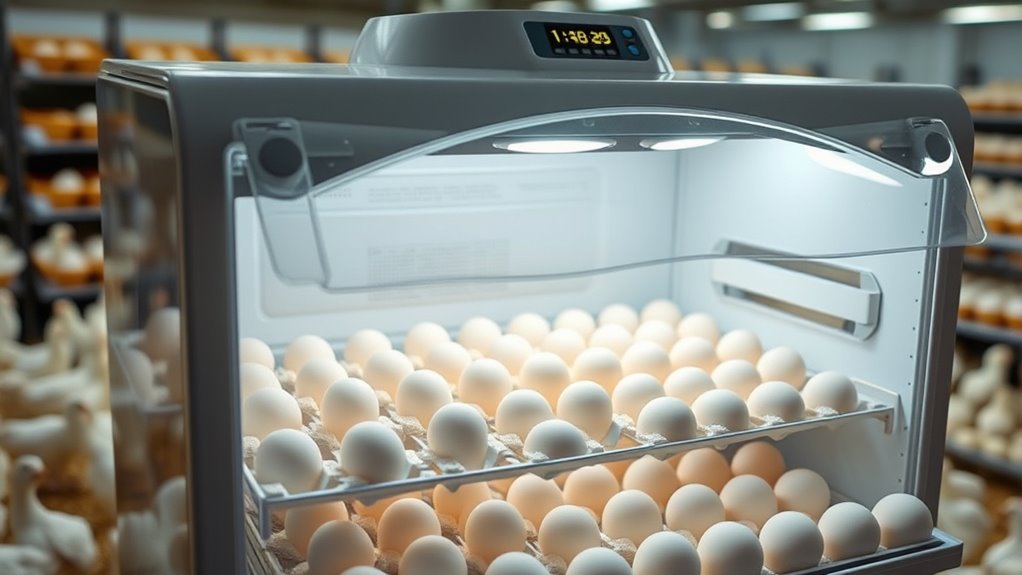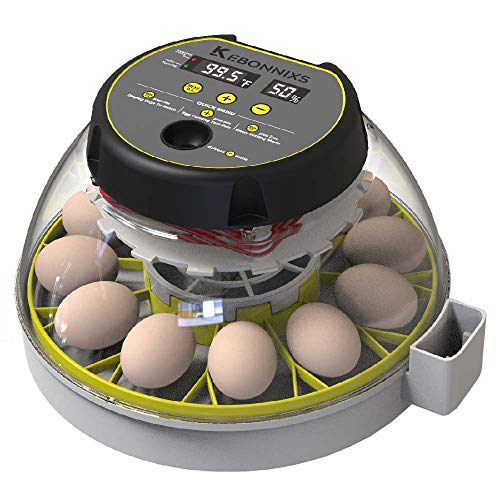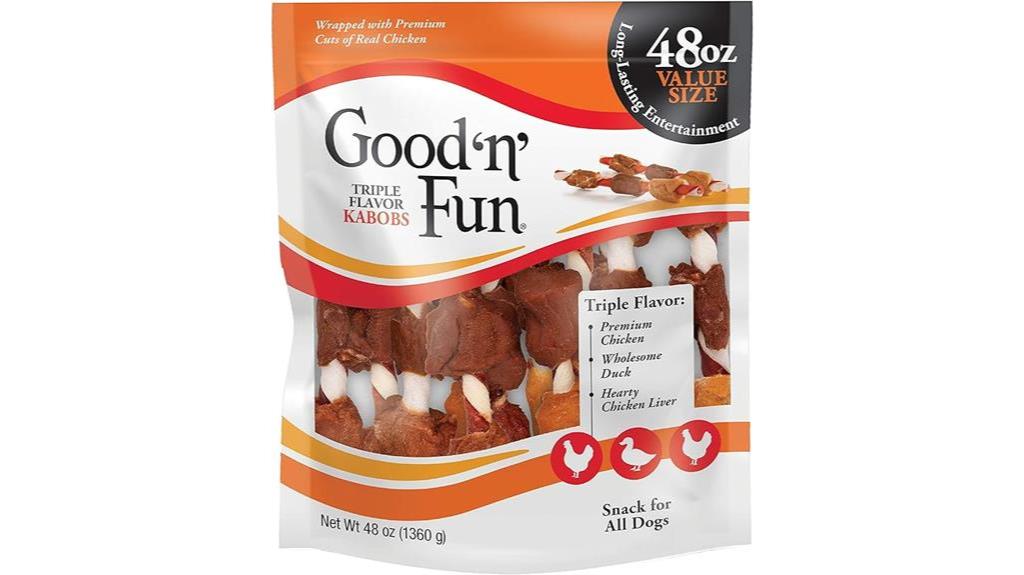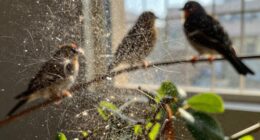If you’re looking to hatch eggs successfully in 2025, I recommend considering incubators with versatile capacities, automatic turning, digital controls, and reliable humidity regulation. Options range from small 12-egg models perfect for hobbyists to larger units supporting 48 eggs for bigger projects. The best models balance ease of use, durability, and precision, ensuring high hatch rates. Stay tuned, as I’ll guide you through the top features and factors that will help you select the perfect incubator for your needs.
Key Takeaways
- Top incubators in 2025 feature advanced temperature and humidity controls for higher hatch rates.
- They offer various capacities, from small hobby models to larger farm-scale units.
- Many include automatic egg turners and real-time monitoring for ease of use.
- Durability, user-friendly interfaces, and reliable performance are key selection factors.
- Budget options range from affordable basic models to high-end incubators with premium automation features.
Harris Farms Nurture Right Egg Incubator for Hatching Chicks
If you’re looking for a compact, user-friendly incubator for small to medium hatching projects, the Harris Farms Nurture Right Egg Incubator is an excellent choice. It holds 12-22 eggs, suitable for chickens, ducks, and pheasants, and features an automatic egg turner along with temperature and humidity controls. The clear window allows me to monitor eggs easily, while 360° airflow ensures even heat distribution, boosting hatch rates. Maintaining a steady 99.5°F temperature and managing humidity is straightforward, though some adjustments may be needed based on your environment. Overall, it’s simple to use and offers reliable results for small-scale hatchers.
Best For: small to medium-scale hatchers seeking an easy-to-use incubator for various bird eggs like chickens, ducks, and pheasants.
Pros:
- User-friendly controls with automatic egg turner and clear viewing window for easy monitoring.
- Even heat distribution thanks to 360° airflow circulation, which enhances hatch rates.
- Compact size suitable for small to medium hatch projects with capacity of up to 22 eggs.
Cons:
- Occasional temperature fluctuations and humidity stability issues reported by some users.
- Challenges in maintaining low humidity in very humid environments; may require gradual water addition.
- Lid alignment and removal can be tricky, and some users find the lid design could be improved.
18 Egg Incubator with Automatic Egg Turning and Humidity Control
The Egg Incubator with Automatic Egg Turning and Humidity Control stands out as an ideal choice for beginners and casual hobbyists seeking reliable, low-maintenance incubation. Its automatic egg turning feature reduces manual effort and ensures proper embryo development, stopping four days before hatch. With dual trays, it accommodates various bird eggs, while the built-in candler allows easy embryo monitoring. The compact design is easy to clean and operate quietly. Precise temperature control and adjustable humidity help optimize hatch success. Though some users note humidity fluctuations, many report hatch rates up to 100%. Overall, it’s a user-friendly, dependable incubator perfect for those starting or expanding their hatching adventures.
Best For: beginners and casual hobbyists looking for a reliable, easy-to-use incubator for various bird eggs with automatic turning and humidity control.
Pros:
- Simplifies incubation with automatic egg turning and easy monitoring features.
- Suitable for multiple bird species thanks to dual trays and adjustable settings.
- Compact, lightweight design makes it easy to clean and operate quietly.
Cons:
- Some users report fluctuations in humidity levels, requiring manual adjustments.
- Build quality may be fragile or cheaply constructed, affecting durability.
- Limited space for larger chicks or multiple hatches at once.
Quail Egg Incubator with Automatic Egg Turning and Humidity Control
The Quail Egg Incubator with Automatic Egg Turning and Humidity Control stands out for its user-friendly automation features, making it an excellent choice for both beginners and experienced breeders. It automatically turns eggs and monitors humidity with an intelligent sensor, improving hatch success. The digital display shows real-time data, simplifying maintenance. Its large capacity of 40 eggs suits small farms, classrooms, and hobbyists. Made from food-grade ABS, it’s lightweight and easy to move. The incubator supports dual power sources, ensuring stability during outages. Overall, it offers reliable, hands-free operation, though some users note the need for secondary calibration to prevent uneven heat distribution.
Best For: hobbyists, small-scale breeders, and educational institutions seeking an easy-to-use, automated incubator for quail and small bird eggs.
Pros:
- Automates egg turning and humidity control, increasing hatch success rates.
- Made from food-grade, lightweight ABS material with a compact design for easy handling and cleaning.
- Supports dual power sources and features a digital display with real-time data for straightforward operation.
Cons:
- Some users experience uneven heat distribution, which can affect hatch outcomes.
- Calibration may be necessary to ensure consistent temperature and humidity levels.
- Customer ratings indicate moderate satisfaction, suggesting occasional issues with reliability or consistency.
Automatic Egg Incubator with Auto-Turning & Humidity Control
For anyone seeking a hands-free incubation experience, the automatic egg incubator with auto-turning and humidity control is an excellent choice. It features intelligent 360° rotation with adjustable modes (60/120/180 minutes), stopping before day 4 to mimic natural hen behavior. The incubator maintains consistent conditions with heating uniformity exceeding regular models by 20% and precise temperature (68°F to 104°F). Dual water tanks and a circulating fan keep humidity stable within ±0.5%. Plus, its clear dome and observation window let you monitor embryo development safely. With a one-year warranty and versatile trays, it’s perfect for home, educational projects, and family bonding.
Best For: hobbyists, educators, and families seeking a hands-free, reliable incubation solution for observing and learning about embryo development.
Pros:
- Automatic 360° rotation with adjustable modes for natural incubation mimicry
- Precise temperature and humidity control within ±0.5°, ensuring optimal hatch conditions
- Clear observation dome and egg candle light for easy embryo monitoring
Cons:
- Limited capacity may not suit large-scale hatchery needs
- Requires initial setup and calibration for optimal performance
- External water bottles need refilling, which may be inconvenient during extended incubation periods
APDOE HatchPro 12 Egg Incubator with Temperature & Humidity Control
If you’re new to incubation or want an easy-to-use option for small-scale hatching, the APDOE HatchPro 12 Egg Incubator is a great choice. It offers precise digital control of temperature and humidity, with clear display panels for easy monitoring. The innovative 2-in-1 humidity system and adjustable air vents ensure flexible, accurate conditions. Its transparent observation window makes watching hatchings engaging and educational. The removable trays and detachable design simplify cleaning, while external water bottles automate humidity management. An automatic egg turner rotates eggs every 2 hours, mimicking natural behavior. Overall, it’s simple, effective, and perfect for beginners or small-scale hobbyists.
Best For: beginners, small-scale hobbyists, and families looking for an easy-to-use, reliable incubator for hatching various bird eggs.
Pros:
- Precise digital temperature and humidity control with clear display panels for easy monitoring
- Removable trays and detachable design for quick cleaning and maintenance
- Automated egg turner and external water bottles simplify incubation and humidity management
Cons:
- Some users experience humidity regulation issues, requiring manual refilling of water channels
- Build quality may feel flimsy or less durable compared to higher-end incubators
- Limited space and design may pose risks for tiny birds or certain species during hatching
18 Egg Incubator with Automatic Egg Turning and Humidity Control
Those seeking a reliable incubator that simplifies hatching will appreciate models with automatic egg turning and humidity control. I’ve found the 18 Egg Incubator perfect for this, with adjustable temperature settings and a built-in fan for stable airflow. Its automatic egg turner rotates eggs every ½, 1, or 3 hours, improving hatch rates. The two water bottles automatically maintain humidity levels, reducing manual adjustments. A clear viewing window lets me monitor progress easily. While humidity can sometimes be tricky to control, using additional tools helps. Overall, its user-friendly design, auto-turning, and visual access make it ideal for small-scale hatching at home, in labs, or classrooms.
Best For: small-scale hobbyists, educators, or home users seeking an easy-to-use incubator with automatic egg turning and humidity control to maximize hatch success.
Pros:
- Automatic egg turning every ½, 1, or 3 hours for even incubation.
- Built-in fan system with adjustable temperature for stable internal conditions.
- Clear viewing window and visual candler light for easy monitoring of eggs during incubation.
Cons:
- Humidity control can be challenging; may require manual adjustments with additional tools.
- Temperature fluctuations and alarms may be intrusive if not closely monitored.
- Limited capacity once hatchlings are dry; best suited for small batches of eggs.
Harris Farms Egg Incubator with Automatic Turn and Temperature Control
The Harris Farms Egg Incubator with Automatic Turn and Temperature Control stands out as an excellent choice for small to medium hatch projects, thanks to its capacity of 12-22 eggs and user-friendly features. It offers automatic egg turning, precise temperature control at 99.5°F, and easy humidity adjustment with a clear display. The transparent window provides full visibility, making monitoring simple. Its 360° airflow ensures even heat distribution, boosting hatch success. While some users report temperature fluctuations and humidity challenges, many find it reliable for beginner to intermediate hatching. Overall, it’s a compact, efficient incubator ideal for hobbyists aiming for consistent results.
Best For: hobbyists and small-scale farmers seeking an easy-to-use incubator with automatic egg turning and good hatch potential for chickens, ducks, or pheasants.
Pros:
- Automatic egg turner simplifies incubation process and reduces manual handling
- Clear window allows full visibility of eggs throughout incubation
- Consistent temperature control at 99.5°F with 360° airflow for even heat distribution
Cons:
- Temperature fluctuations and humidity stability issues reported by some users
- Small size may cause hot/cold spots affecting hatch success
- Challenges in maintaining low humidity levels in humid environments and lid alignment difficulties
12 Egg Incubator with Humidity Display
Egg incubators with humidity displays are ideal for beginners and small-scale hatchers who want precise control over incubation conditions. I find the built-in humidity monitor incredibly helpful, making it easier to maintain the right environment for successful hatching. The external water top-up feature allows me to add water without opening the lid, keeping temperature stable. With a capacity of 12 eggs, it’s perfect for small batches of chickens, ducks, or quail. The LED candling light helps me check embryo development without disturbing the eggs. Overall, its simple design, reliable humidity display, and user-friendly features make it a great choice for anyone starting out.
Best For: beginner hatchers and small-scale breeders seeking an easy-to-use incubator with reliable humidity control and clear monitoring features.
Pros:
- Easy to operate with clear instructions, ideal for beginners
- Built-in humidity display and external water top-up for precise environment management
- Compact design with egg candling light and automatic egg turning for higher hatch success
Cons:
- Some units may experience temperature fluctuations or humidity instability
- Limited adjustable settings; calibration may be needed for optimal performance
- Occasional reports of missing accessories or packaging issues in shipping
MATICOOPX 30 Egg Incubator with Humidity Display
If you’re seeking an incubator that combines reliable temperature control with ease of use, the MATICOOPX 30 Egg Incubator with Humidity Display is an excellent choice. Its circulating airflow and strong fan ensure consistent heat, while external water refilling prevents temperature and humidity fluctuations. The built-in egg candler allows quick embryo checks, and the automatic turner rotates eggs every 60 minutes, stopping three days before hatch. With a capacity of up to 30 eggs and adjustable positions, it suits various egg sizes. Users praise its stability, high hatch rates, and durability, making it ideal for both beginners and experienced hatchers alike.
Best For: hobbyists and small-scale poultry breeders seeking a reliable, easy-to-use incubator with high hatch success and minimal maintenance.
Pros:
- Maintains stable temperature and humidity for consistent hatching results
- Large capacity accommodates up to 30 eggs with adjustable positions
- User-friendly with automatic egg turner and built-in egg candler
Cons:
- Cleaning can be difficult due to tight corners and sharp edges
- Humidity control relies on external water bottle, which can be messy during hatch
- Some users suggest adding secondary thermometers for more precise monitoring
Incubators for Hatching Eggs (12 Egg)
Looking for a compact, affordable incubator that’s perfect for small-scale hatching projects? This 12-egg incubator measures just over 10 inches on each side, with a clear 360° lid for easy egg monitoring. Made from durable ABS, it features automatic egg turning every 2 hours and an LED display for temperature tracking. The water bottle ensures humidity stays steady, while the external water injector keeps things simple. Although some users report temperature inconsistencies and humidity control challenges, the incubator’s ease of use, low price, and high hatch rates make it a great choice for hobbyists and small farms. Just watch out for the loose lid and manual humidity adjustments.
Best For: hobbyists, small-scale farmers, and educators seeking an affordable, compact incubator for hatching chicken, duck, quail, or goose eggs with easy observation and automatic egg turning.
Pros:
- Affordable price point makes it accessible for beginners and hobbyists
- Clear 360° lid allows easy monitoring of egg development and hatching progress
- Automatic egg turner helps improve hatch rates with minimal effort
Cons:
- Temperature accuracy can vary, sometimes off by 3-4°C, affecting hatch success
- Humidity control is manual and lacks a built-in sensor, requiring user adjustments
- Lid fits loosely, necessitating tape or other solutions for secure closure during incubation
Incubator for Hatching Eggs (18 Egg Capacity)
For small-scale hatchers and beginners aiming for high success rates, the 18-egg capacity incubator is an excellent choice. It offers versatility with two interchangeable trays, accommodating chicken, duck, quail, and geese eggs. The transparent 360° design makes monitoring easy, while the durable ABS plastic construction guarantees longevity. Setup is straightforward, with pre-programmed settings for chicken eggs and adjustable options for others. The incubator maintains consistent temperature and humidity with automatic controls, and the built-in candling window helps track embryo development. Its reliability, ease of use, and high hatch rates make it ideal for those starting out or running small hatcheries.
Best For: small-scale hatchers, beginners, and educational users seeking a reliable, easy-to-use incubator with high hatch success rates.
Pros:
- Versatile with two interchangeable trays for different egg sizes, accommodating various bird species.
- Transparent 360° design allows easy monitoring of eggs without disturbing the incubation environment.
- Automatic temperature, humidity, and egg-turning features simplify operation and improve hatch rates.
Cons:
- Humidity control during lockdown may require manual adjustments with additional water sources.
- Some users find it necessary to follow instructions carefully to avoid issues with temperature stability.
- Limited capacity of 18 eggs may not suit larger hatchery operations or commercial needs.
48 Egg Incubator with Automatic Egg Turning and Humidity Control
The Egg Incubator with Automatic Egg Turning and Humidity Control stands out as an ideal choice for serious poultry enthusiasts and small-scale breeders who prioritize consistent hatch success. Its large capacity allows hatching up to 48 eggs, with a transparent 360° view and built-in candling light for easy monitoring. The digital sensors ensure precise temperature control within 0.1°C, while a motor-driven drip system maintains humidity within 1%, reducing manual adjustments. The automatic egg turning mechanism gently turns eggs every 60 to 210 minutes, preventing damage and promoting even development. Durable, waterproof electronics and positive user feedback make this incubator a reliable, efficient tool for successful hatching.
Best For: serious poultry enthusiasts and small-scale breeders seeking reliable, large-capacity incubation with precise climate control.
Pros:
- Large capacity allows hatching up to 48 eggs simultaneously, ideal for various bird types.
- Digital sensors and automatic humidity control ensure consistent temperature and humidity for higher hatch rates.
- Transparent 360° viewing window with candling light simplifies egg monitoring and development observation.
Cons:
- May be more expensive than smaller or manual incubators, requiring a larger initial investment.
- Complex features could require a learning curve for first-time users.
- Dependence on electronic components means potential issues if waterproofing or electronics malfunction.
Incubator for Hatching Eggs with Automatic Egg Turning and Humidity Control
An incubator equipped with automatic egg turning and humidity control is ideal for hobbyists and small-scale breeders who want reliable, hands-free incubation. I’ve found that models like the Cieex Incubator offer precise temperature and humidity regulation, with alarms to alert me if conditions go out of range. The 360° airflow ensures even heat distribution, while automatic egg turning improves hatch rates. Its compact design fits easily in my space, and features like built-in candling make monitoring simple. Overall, this type of incubator simplifies the process, boosts success, and allows me to focus on caring for my eggs instead of constant adjustments.
Best For: hobbyists and small-scale breeders seeking reliable, hands-free incubation with precise environmental control.
Pros:
- Automatic egg turning and humidity regulation for higher hatch success.
- Compact size with versatile capacity for various small bird eggs.
- Built-in candling and digital display for easy monitoring and management.
Cons:
- Some users experience difficulty adjusting humidity settings accurately.
- Screen readability issues can make monitoring less convenient.
- Humidity levels may spike during water bottle refilling, requiring careful management.
18 Egg Incubator with Automatic Egg Turning and Humidity Control
If you’re seeking an incubator that simplifies hatching with minimal effort, the Egg Incubator with Automatic Egg Turning and Humidity Control is a top pick. It features adjustable temperature settings, a built-in fan for airflow, and a digital control panel for precise regulation of temperature and humidity. The automatic egg turner operates every 2 hours, stopping 3 days before hatch to boost success rates. It also has two water bottles for stable humidity and a clear lid with a built-in egg candler to watch embryo development without opening. Compact and user-friendly, it’s perfect for beginners, hobbyists, and educational settings alike.
Best For: hobbyists, educators, and small-scale poultry enthusiasts seeking an easy-to-use, reliable incubator for hatching various bird eggs.
Pros:
- Fully automatic functions including temperature control, humidity regulation, and egg turning for hassle-free operation.
- Transparent lid with built-in egg candler allows real-time observation without opening, maintaining a stable environment.
- Compact, lightweight, and easy to set up, making it suitable for beginners and educational use.
Cons:
- Limited capacity (up to 18 chicken or duck eggs, 40 small bird eggs), which may not suit large-scale hatching needs.
- Made in China, which may be a consideration for buyers seeking products from specific regions.
- Requires electricity for operation, so it may not be ideal for off-grid locations.
Factors to Consider When Choosing Egg Incubators
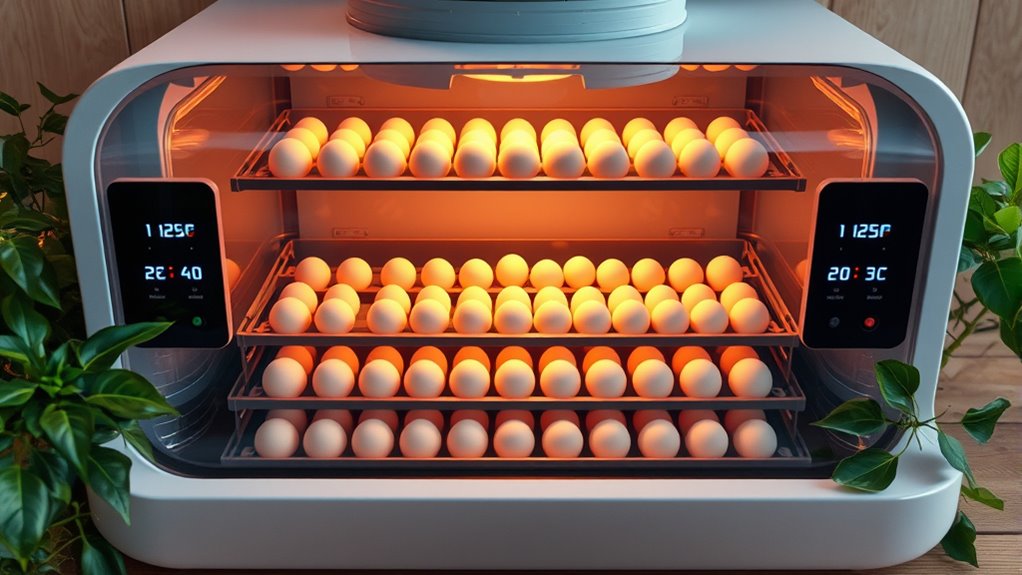
When selecting an egg incubator, I focus on capacity needs to guarantee it fits my hatchery size. I also consider how stable the temperature and humidity controls are, since consistent conditions are key for successful incubation. Finally, I look for features that match my egg types and are easy to use, making the process smoother.
Incubator Capacity Needs
Choosing the right incubator capacity is essential to guarantee successful hatching while fitting your space and future plans. I recommend selecting an incubator that matches your expected hatch quantity, whether you’re starting small with 12-18 eggs or planning larger batches of 48 or more. Consider the types of eggs you plan to hatch, as some incubators are designed for specific sizes or species, affecting the number you can incubate at once. Proper airflow and space between eggs are crucial to prevent overcrowding and ensure uniform temperature and humidity. Think ahead about your future hatching goals; opting for a slightly larger capacity provides room for expansion. Also, remember that bigger models require more space, so ensure your setup can accommodate their size comfortably.
Temperature Stability Importance
Maintaining a steady temperature is essential for successful incubation, as even minor fluctuations can harm developing embryos. Fluctuations beyond 1-2°F can reduce hatch rates or cause deformities, making precise temperature control critical. Incubators with accurate temperature systems help prevent hot or cold spots that could damage eggs. I recommend using external thermometers or hygrometers to double-check internal temperatures, ensuring reliability beyond built-in sensors. Consistent temperature throughout incubation, especially during the critical lockdown phase, greatly influences hatch success. Rapid temperature changes or instability can lead to embryonic death, hatchling shrink-wrapping, or total failure to hatch. Prioritizing an incubator with excellent temperature stability is key for maximizing hatch rates and ensuring healthy chicks.
Humidity Control Methods
Effective humidity control hinges on selecting incubators equipped with reliable methods such as automatic water refill systems, external reservoirs, or digital sensors. These features help maintain stable moisture levels, which are crucial for embryo development. During incubation, humidity should stay around 50-55%, increasing to 65-70% during hatching, to prevent dehydration or excess moisture. Manual regulation involves adding or removing water from trays or sponges, but it requires constant monitoring to avoid fluctuations that could harm the eggs. Advanced incubators often include automatic humidity control systems that adjust moisture levels precisely based on sensor feedback, markedly improving hatch success. Keep in mind that external factors like room humidity can also influence internal conditions, so choosing an incubator with adaptive features makes maintaining ideal humidity much easier.
Egg Type Compatibility
Are you selecting an incubator for a specific type of egg? If so, it’s vital to choose one designed to support that particular species. Different eggs—chicken, duck, quail, or goose—vary in size, shape, and incubation needs. An incubator’s temperature and humidity settings must align with those requirements to guarantee a healthy hatch. Some models feature adjustable trays or settings that accommodate various egg sizes, making them versatile for multiple species. Compatibility affects hatch rates and chick health, so using an incubator suited for your egg type helps prevent issues like eggs rolling or damage. Carefully consider the incubator’s design and features to match your chosen eggs, ensuring ideal conditions and a successful hatch.
Ease of Use Features
How do you guarantee your egg incubation process is smooth and stress-free? The key is choosing an incubator packed with user-friendly features. Automatic egg turners simplify your work by rotating eggs every 1-3 hours, ensuring even development without manual effort. Clear viewing windows or candling ports let you monitor embryo progress without opening the incubator, keeping conditions stable. Digital control panels make adjusting temperature and humidity straightforward, with precise settings that help maintain ideal conditions. Additional features like automatic humidity regulation, water refill systems, and alarms for out-of-range conditions further ease operation. Well-designed incubators often come with simple setup instructions and minimal maintenance needs, making incubation accessible—even for beginners—so you can focus on hatching success without unnecessary hassle.
Durability and Reliability
Choosing a durable and reliable egg incubator is vital for consistent hatching success. I look for models built with high-quality, heat-resistant materials like ABS plastic or metal, which can withstand frequent use and environmental challenges. Reliable incubators keep temperature and humidity levels steady within tight tolerances, minimizing hatch failures. I also check that electronic components such as thermostats, humidity sensors, and fans are protected against moisture to prevent malfunctions. Incubators with sturdy lids, reinforced hinges, and secure doors are less likely to incur damage during handling or cleaning. Long-term reliability is essential, so I value products backed by solid warranties and positive reviews indicating minimal breakdowns over multiple incubation cycles. Durability ensures my investment lasts and my hatch rate remains high.
Budget and Cost Value
When selecting an egg incubator, understanding its cost relative to the features and quality it offers is essential for making a smart investment. Basic models can cost under $50, but they often lack precise temperature and humidity controls, which can lower hatch rates and require more monitoring. On the other hand, high-end incubators over $500 provide better environmental regulation, durability, and higher hatch success, offering greater long-term value. Budget-friendly options may need extra accessories or external monitors to optimize conditions. To find the best balance, consider the cost-to-value ratio by evaluating features like automatic turning, humidity control, capacity, and build quality relative to the price. This ensures you choose an incubator that meets your needs without overspending.
Frequently Asked Questions
How Energy-Efficient Are Modern Egg Incubators?
You’re wondering how energy-efficient modern egg incubators are, right? I can tell you they’ve come a long way. Most now feature advanced insulation, smart thermostats, and energy-saving modes that reduce power consumption without sacrificing performance. I’ve been impressed by how they balance maintaining ideal conditions while using less energy. So, if you’re eco-conscious or want to save on bills, today’s incubators are a smart, efficient choice.
What Safety Features Are Included in Top Incubator Models?
When I look at top incubator models, I notice they include safety features like automatic shut-off if temperatures get too high or low, ensuring eggs stay safe. Many also have alarms to alert me of any issues and sturdy, insulated builds to prevent accidents. These features give me peace of mind, knowing my eggs are protected and that I can focus on hatching success instead of worries.
Can Incubators Be Used for Reptile or Amphibian Eggs?
Sure, incubators can be used for reptile or amphibian eggs — who knew? I’ve actually tried it myself, and they work surprisingly well. Just keep in mind, these creatures often need different temperature and humidity levels than chicken eggs. So, if you’re thinking of trying, do your research first. With some adjustments, your reptile or amphibian hatchling dreams might just come true in that same trusty incubator!
How Often Should Incubator Components Be Cleaned?
I recommend cleaning your incubator components after each hatch or every two to three uses. Regular cleaning prevents bacteria and mold buildup, ensuring a healthy environment for your eggs. I personally wipe down trays, sensors, and the interior with a mild disinfectant, making sure everything is dry before adding new eggs. Maintaining a clean incubator helps improve hatch rates and keeps your eggs safe and healthy.
Are There Portable Egg Incubators for Travel or Outdoor Use?
Did you know that over 60% of poultry enthusiasts travel with portable incubators? Yes, there are compact, lightweight incubators perfect for outdoor use or travel. I’ve used some myself, and they’re fantastic for keeping eggs warm on the go. These models usually come with battery options and easy-to-carry designs, making it simple to hatch eggs anywhere. If you love adventure and poultry, a portable incubator is a game-changer!
Conclusion
Choosing the right egg incubator is like finding the perfect recipe for success—each one helps hatch your dreams with care. Whether you’re starting small or going big, these options are designed to give your eggs the best chance to thrive. Just remember, patience and attention make all the difference. So, pick the one that feels right, and watch your little hatchlings take their first brave steps into the world.
